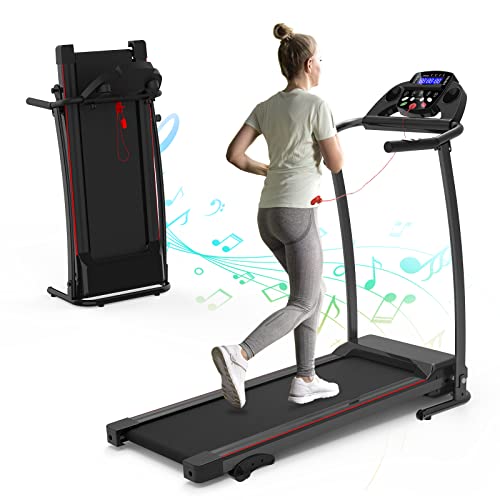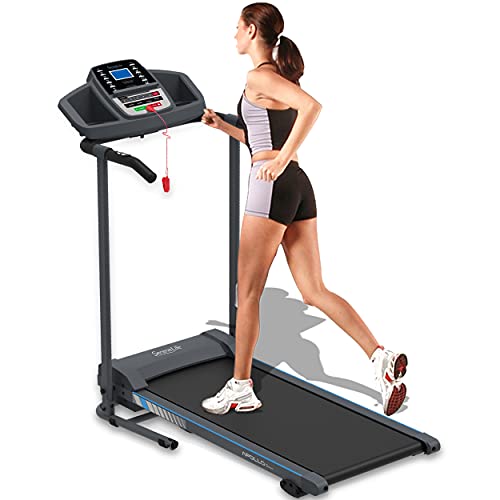You'll Never Guess This Treadmill Incline Workout's Benefits
페이지 정보
작성자Lon 댓글댓글 0건 조회조회 21회 작성일 24-10-12 19:16본문
 How to Use a Treadmill Incline Workout
How to Use a Treadmill Incline WorkoutMany treadmills let you alter the slope. Uphill walking at a steep angle burns more calories than walking on a flat surface.
 This exercise is also low-impact and can be an ideal alternative to running for those suffering from joint issues. It can be done in a variety of speed and is easy to modify based on fitness goals.
This exercise is also low-impact and can be an ideal alternative to running for those suffering from joint issues. It can be done in a variety of speed and is easy to modify based on fitness goals.Selecting the best slope
No matter if you're a beginner on a treadmill or an experienced veteran, incline training offers many opportunities to increase the intensity of your exercise routine. The addition of incline on a treadmill helps simulate the feel of running outside without all the pounding of joints. Boosting the intensity of your runs or walks will help you burn more calories and build endurance, strengthen the muscles in your lower leg, and increase your heart rate to increase the flow of blood. It is easy to incorporate incline-training into your cardio routine as part of an HIIT or steady-state workout.
Keep your arms pumping while walking up an incline. In general, you should tighten up your arms at an angle of 15% and relax your arms at a 1% slope. This will improve your walking form and reduce the risk of injury. Be sure not to lean forward too much when you walk up steep hills, as it can stress your back.
If you are new to treadmill incline exercises, it is recommended to begin with a lower slope. It's best to be able to comfortably do 30 minutes of walking at a steady pace on flat ground prior attempting any kind of incline. This will help avoid injury and let you gradually build up your fitness level.
Most treadmills incline have the option to set a specific incline when you're working out. Some treadmills do not allow the user to manually change the incline. You'll have to stop your workout to manually adjust the deck to your desired setting. This is a hassle and not the most convenient for an interval workout where the incline is changed every few minutes.
When you're participating in an HIIT session, it's helpful to know the approximate percentage of your maximum heart rate (HRmax). This will let you determine when you've attained your target heart rate and when it's time to increase or decrease speed. If you're exercising in steady-state it's important to monitor your heart rate throughout your workout and maintain it within 80-90% of the maximum heart rate.
Warming up
Running on a treadmill is an effective way to burn calories however, adding an incline increases the intensity and offers additional benefits, such as functional strength training. Warming up is essential before increasing the intensity. This will lower the chance of injury, and prepare your muscles for the more demanding work to come.
If you're just beginning and are just beginning your exercise, two minutes of fast walking is a great method to start your warm-up. After you've warmed-up, you can begin jogging. You can continue to warm up your legs by adding a two-minute brisk walk after your run. Then, you can move on to a full body workout which includes bodyweight exercises, such as walking lunges and squats.
A full-body workout is a great option because it targets multiple muscles and helps build an energised core. This is a great way to increase your heart rate without pushing too hard on the treadmill. If you're unsure of which workout routine to pick you can ask your fitness instructor for help.
Include an incline to your treadmill with incline exercise. This will give you the most realistic exercise terrain and boost your VO2 Max, which is the maximum oxygen intake. Walking on an incline will help you prepare your muscles to walk on real-world terrain and reduce the impact to your knees.
Treadmill incline workouts also target different leg muscles and are ideal for strengthening the lower body. Walking at an angle will also increase the range of motion in your arms and strengthen your shoulders and chest.
A high-intensity treadmill workout can be an excellent choice for those who are new to the sport and is ideal for those who wish to test themselves and attain higher heart rates without the pressure of pushing their bodies to the limit. It is important to monitor your heart rate during a vigorous treadmill workout, and be sure to stretch afterwards. Stretching can help relax tight muscles and will help to recover your body from the intense workout.
Intervals
You can vary the intensity of a treadmill incline exercise by using intervals. Interval training has been proven to increase the amount of calories burned while building muscles faster. It involves alternating periods of intense exercise with periods of less intensity exercises, like running or a short walk. This type of exercise will help you increase your maximum oxygen consumption during exercise, or the VO2 max.
To get the most out of your treadmill incline workout you should try to include a mix of walking and jogging. This will allow your body to recover from high-intensity exercises and avoid injury. It is also important to ensure that you warm up before beginning the intervals.
The first step in determining the treadmill incline workout why is incline treadmill good to determine your goal heart rate. It should be between 80 and 90% of your client's maximum heart rate. Then, you can decide what incline and speed you should apply to each interval.
You can create your own interval program or use the built-in programs that come with your treadmill. For example, you can begin with a three-minute interval that is set at a comfortable jog for the first set, and then gradually increase the incline every time. Once you've reached your desired heart rate, you can easily jog for the remainder of the workout.
For the next set, you should walk at an angle of 10 percent and then run for three to six times. Then, you can return to jogging at a slow pace for about a minute. Repeat this process for a total of five to eight intervals.
If you don't feel at ease on a treadmill, try a running or walking incline workout. This can test your balance and work the muscles in your legs more than a treadmill. It's important to make sure your knees and ankles are free of any issues before you try this type exercise.
You can also add dumbbell exercises to your incline workout to increase exercise for building muscles. For instance, you could, do dumbbell rows and lateral raises during your rest intervals to make the workout more difficult.
Recovery
Most treadmills incline have an incline feature which lets you simulate running and walking uphill. You can adjust the incline of your treadmill to increase the difficulty, or to include intervals with higher intensity. This type of exercise is great for people who wish to boost their cardiovascular fitness and burn calories without worrying about the impact on their joints.
This exercise stimulates various muscles throughout the body, which aids to increase the amount of calories burned. This can help strengthen the posterior chain, which includes the glutes and hamstrings. Inline treadmill walking also exercises the muscles that make up the calves, including the smaller tibialis and peroneal anterior muscles. This can improve strength and flexibility, and could be used as an alternative to jogging for people who do not feel comfortable doing the high-impact exercise.
If you're new to incline-walking, start with a low angle and increase it gradually over time. This will aid you in avoiding joint pain and reach your fitness goals quicker. Be aware of your body. Stop exercising if you feel any discomfort or pain.
Warm up with gentle slope or walking on a level for five minutes to benefit the most from your incline exercise. Also, don't forget to monitor your heart rate throughout the exercise to ensure that you remain within your target heart rate zone.
After your first incline interval, reduce the slope to zero and walk at a steady pace for 3-4 minutes. This recovery phase helps your heart rate return to a normal pace and prepares your body for the next interval of incline.
Repeat this procedure for the remainder of your training on an incline. Keep the ratio of work to rest as close to 1:1. This allows you to increase the intensity of your workout and get the desired results in a shorter amount of time. Stretch your muscles after a workout to prevent tight muscles and problems with flexibility.
댓글목록
등록된 댓글이 없습니다.

